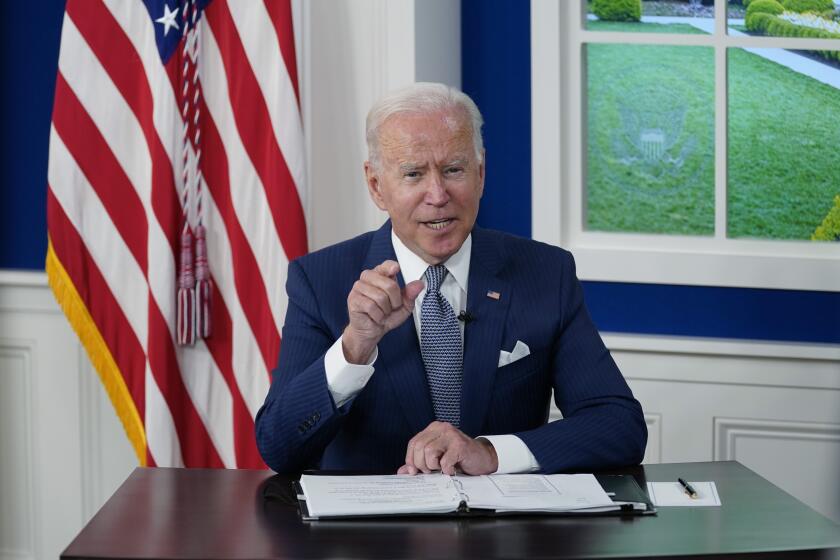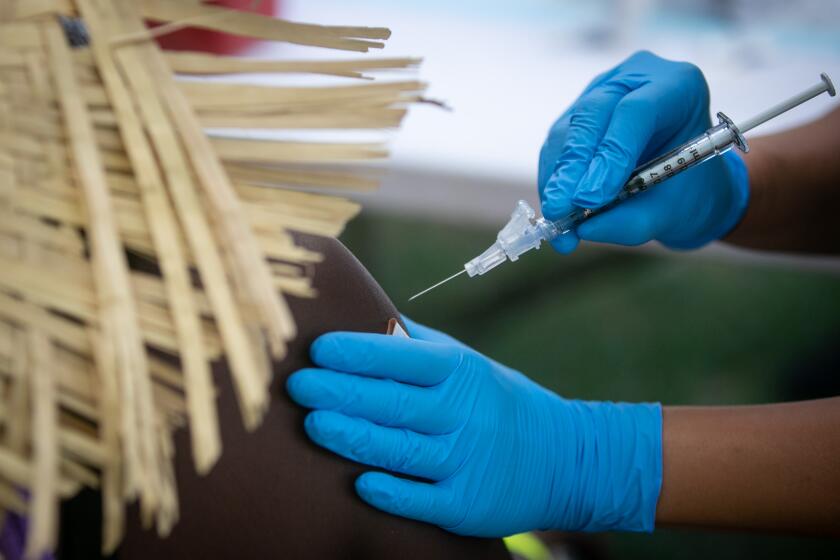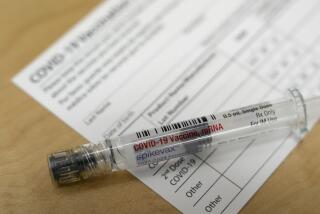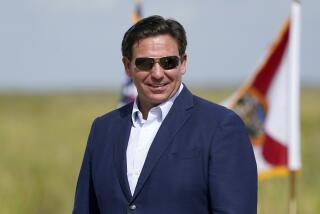Federal officials shift vaccine distribution over fears doses will expire
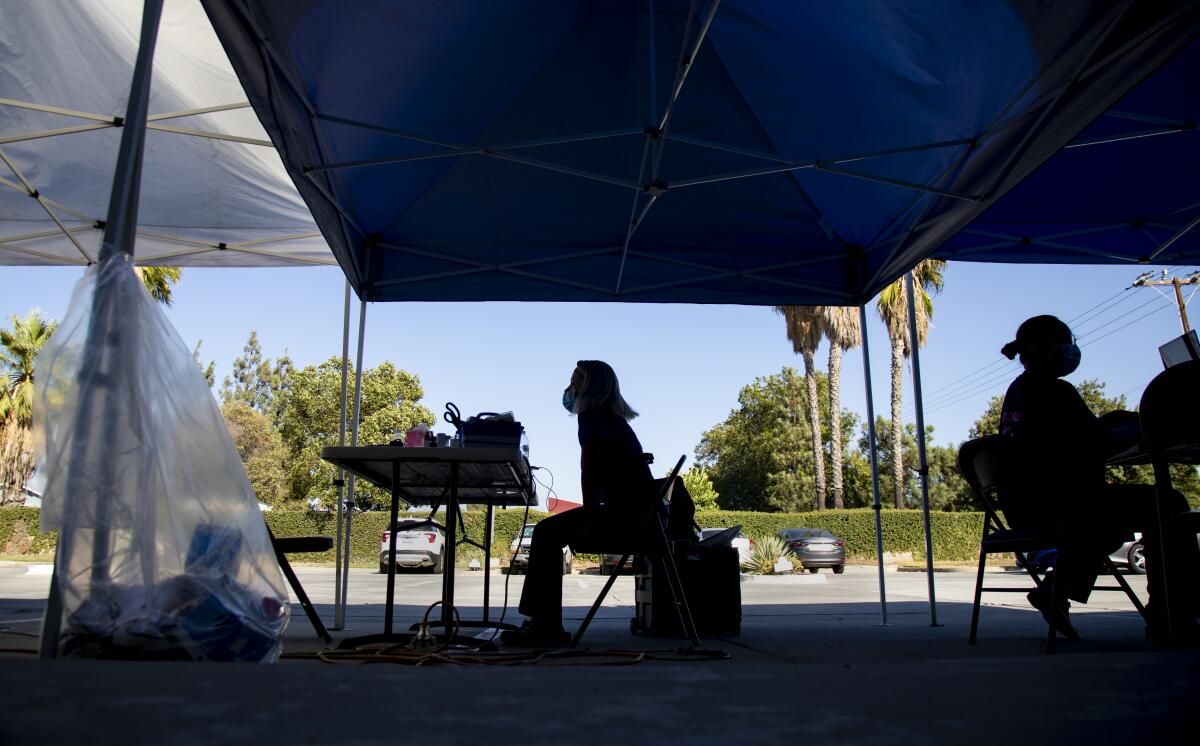
WASHINGTON — Federal health officials are reshuffling their systems for distributing COVID-19 vaccines as they try to reassert control over the country’s divided response to the pandemic and prevent more unnecessary deaths.
States will no longer be allowed to order as many vaccines as they want, a shift intended to prevent doses from expiring in places where people are hesitant to get their shots while ensuring there’s a steady stream of boosters for people eager for a third injection. The new restrictions, which have not been publicly announced, were laid out by the Centers for Disease Control and Prevention in an email that was sent to state officials earlier this week and obtained by The Times.
“We are focused on responsibly managing our inventory and reducing the risk of waste while still providing an ample supply to everyone,” the email said, adding that “jurisdictions will have access to a pro rata share” of the national supply, meaning allocations will be based on states’ population and current stockpile.
President Biden’s commitment will bring to more than 1 billion the total COVID vaccine doses the U.S. has pledged to other countries.
Other limitations were recently put in place for the limited national stockpile of monoclonal antibodies, which unvaccinated people have increasingly relied on to prevent their coronavirus infections from becoming life threatening.
The distribution changes reflect the gap between vaccinated and unvaccinated Americans, a chasm that is poised to grow as federal regulators authorize booster shots for vulnerable people, as well as pediatric vaccines likely to become available to younger children this year. Health experts said the rift is forcing President Biden’s administration to rebalance its approach to the pandemic as it confronts the challenge of saving lives in places where its recommendations are routinely rejected.
“We are going to have two countries, two vaccine nations,” said Peter Hotez, professor of pediatrics and molecular virology and microbiology and co-director of the Texas Children’s Hospital Center for Vaccine Development. “And the third immunization and the pediatric vaccinations will widen that gap between the two nations.”
Biden is attempting to avoid that outcome as the country approaches its second pandemic winter — which could bring increased hospitalizations and deaths as flu season returns and people spend more time indoors — by expanding vaccine requirements in hopes of pressuring more people to get their shots.
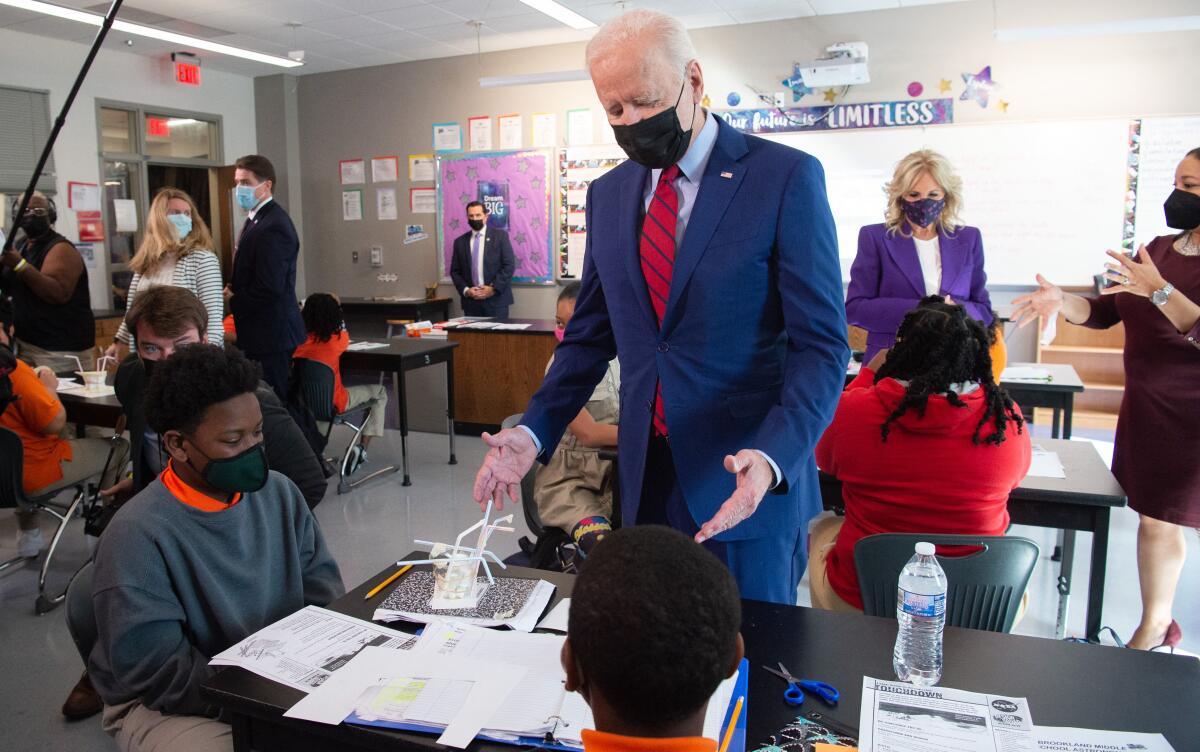
But the president is encountering entrenched resistance along partisan lines, particularly in Republican-led states in the South where the more contagious Delta variant has caused caseloads to surge. Even within heavily Democratic states like California, vaccination rates can vary along with party affiliation and religion — white evangelicals have been particularly opposed to the vaccine.
Richard Besser, who served as acting CDC director under former President Obama, said that “we are definitely in a situation where the country is divided.”
“And with that our chances of really getting this under control go way down,” Besser said. “Once the response to this pandemic became so politicized, the ability to have a national response to this pandemic evaporated.”
U.S. Department of Health and Human Services, in a statement from a spokesperson, emphasized that there is “ample supply” of vaccines for people to receive their initial shots or additional doses.
For people who are vaccinated and seek even greater protection from the coronavirus, new opportunities are around the corner. A CDC panel on Thursday approved booster shots of Pfizer’s vaccine for Americans who are at least 65 years old or who remain vulnerable to serious illness if they become infected. A broader proposal to make boosters more widely available was rejected by the Food and Drug Administration, but regulators could revisit that in the future.
Meanwhile, Pfizer said clinical trials involving its vaccine have shown success in children as young as 5. The U.S.-based company, one of the world’s largest pharmaceutical companies, plans to apply for regulatory approval as soon as this month.
The challenge facing the federal government is how to distribute vaccines at a time when inoculation rates are lopsided in different regions. There’s an estimated 40 million vaccine doses already distributed across the country, according to the CDC email obtained by The Times.
“There is currently a lot of vaccine inventory in the field,” the email said. “To ensure we are using that supply, we are encouraging that providers use the vaccines in the field first, including for potential booster shots.”
The email encouraged state officials to be “good stewards of the vaccine” and not order more than needed.
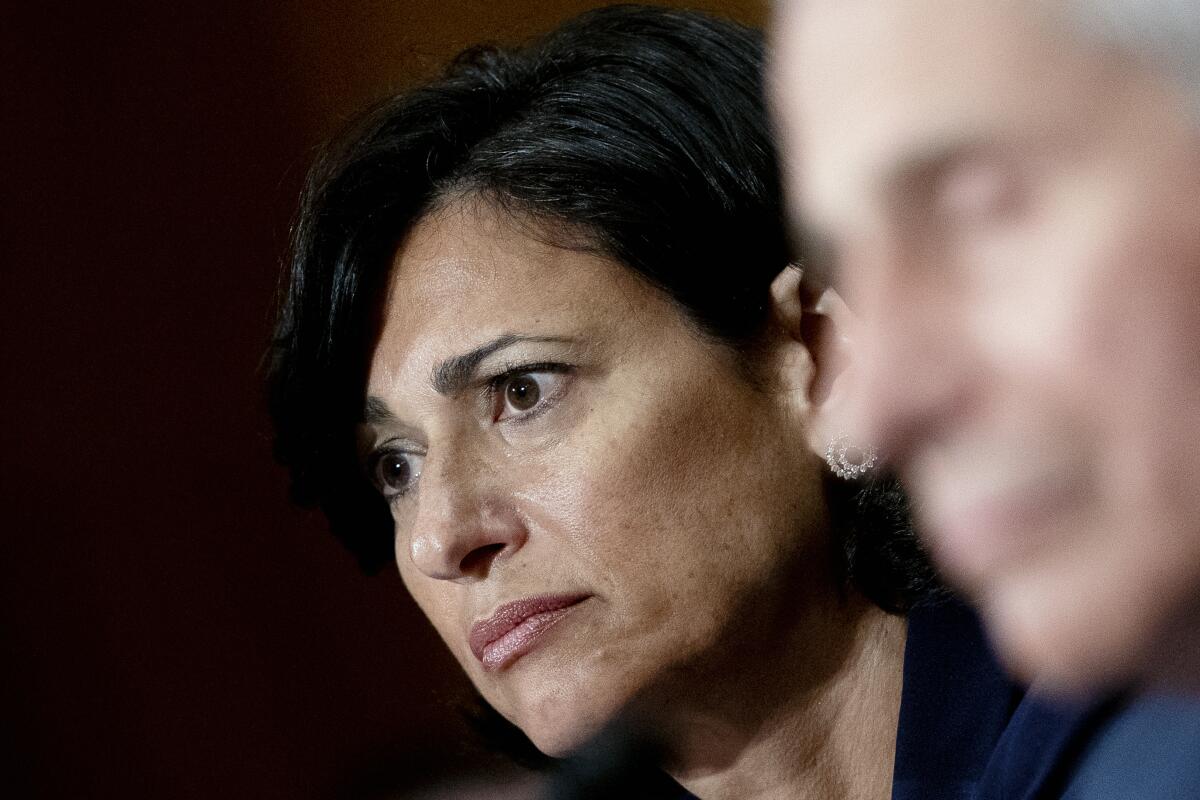
Scott Harris, Alabama’s top health officer, said about 100,000 doses have expired in his state since the start of the pandemic, with demand so low in early summer that his staff was “despairing we would see any improvements” in getting shots in arms.
As of Tuesday, only 42% of eligible Alabama residents were fully inoculated, a rate that’s similar to that of other southern states with overflowing hospitals.
But while vaccine doses sit unused in pharmacies and doctor’s offices, some states and providers have rushed to purchase more monoclonal antibodies, laboratory-made proteins that bind to the coronavirus to inhibit it from entering cells. Used early in an infection, they can prevent serious illness and hospitalizations. Then-President Trump received the treatment last year, and he credited it with speeding his recovery.
Many vaccination-hesitant people have flocked to monoclonal antibodies, and nationwide shipments have skyrocketed from about 10,000 a week in June to an average of 150,000 per week.
One day after the FDA authorized offering booster shots of Pfizer’s COVID vaccine, California unveils a plan to ramp up inoculation rates.
Seven states — Florida, Texas, Mississippi, Alabama, Louisiana, Tennessee and Georgia — were ordering about 70% of the available supply, but not always getting it to patients. During a call with state officials last week, a federal representative, Dr. Meredith Chuk, said only about 44% of shipped supplies had been used.
Earlier this month, federal officials told health authorities in those states that the unfettered access would end, although the new rules would still favor states where the virus was surging because allotments would be determined in part by the number of cases and hospitalizations.
“Our supply is not unlimited, and we believe it should be equitable across states across the country,” White House Press Secretary Jen Psaki said last week.
Facing cutbacks in such treatments, health officials in Tennessee recently declared monoclonal antibodies would be reserved for the unvaccinated and those with immunosuppressive conditions, sparking tension over access.
Harris, the Alabama health official, worries that limiting the supply of the treatment could be enough to trigger even more discontent in his state.
“We have fought really hard against this perception that you don’t need a vaccine because you have this treatment,” he said. “When they can’t get access to this treatment, it just feeds into their conspiracies.”
Already, some conspiracy theorists have spread falsehoods online that healthcare providers are turning patients away from early treatments in a bid to make them candidates for more expensive interventions as their illness becomes severe. They have also alleged that health officials are trying to scare people into getting vaccines as death rates increase.
The system for distributing monoclonal antibodies has critics beyond the vaccination-hesitant, however. In places like California with high vaccination rates and lower numbers of cases, the treatment can be hard to find, breeding frustration for those who have worked hard to protect themselves and their communities from the virus and want access to antibodies for breakthrough cases.
For the week of Sept. 21, federal statistics revealed how the new federal distribution system for monoclonal antibodies is expected to favor states with low vaccination rates. Alabama was set to receive 6,576 doses of the two available infusions; California, which has eight times the population of Alabama and a 40% higher vaccination rate, was due to get 8,400. Meanwhile, Florida, which has 56% vaccination rate, was to get 24,692 doses, and Georgia, which has a vaccination rate of about 41%, was to receive 8,244.
Experts questioned the wisdom of tailoring a public health response to the vaccine-hesitant. Such an approach may not be “good medicine or good public health,” said Kirsten Bibbins-Domingo, chair of UC San Francisco’s department of epidemiology and biostatistics.
However, she said, “it might be the most expedient thing to do to make sure the least number of people die.”
More to Read
Get the L.A. Times Politics newsletter
Deeply reported insights into legislation, politics and policy from Sacramento, Washington and beyond. In your inbox three times per week.
You may occasionally receive promotional content from the Los Angeles Times.
